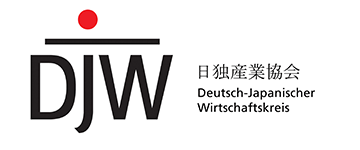Dr. Volker Stanzel, Board Member, Japanese-German Business Association (DJW) and former Ambassador
This article was first published in DJW News 2/2017.
All over the world, many today have become Trump addicts. Blinded by the flash of daily breaking news we hardly realize what all that is happening really means for us and for the world. It does, however, affect us – and maybe Germany and Japan more than others.
The reason is simple. Germany and Japan depend on exports and imports, on trade, that is: on the functioning of globalisation. But as only medium-sized powers without any means of truly influencing what is happening in the world, they depend on the rules which maintain the liberal international order. This world order has its roots in the late 19th century. After the Second World War its success was political as well as economic, and it made the peaceful breakup of the Soviet Empire possible. With regard to Germany and Japan it is most miraculous how these two countries, considered enemy states even today in the United Nations Charter, rebuild themselves as democracies and free-market economies, integrated in the liberal international order.
This order is a world following rational rules which determine economic and government decisions. Such decisions often seem ”without alternative”, breeding resentment like, as Max Weber said, in an “iron cage”. People feel that control over their lives is taken away from them by technocrats, managers, and politicians. As soon as unexpected problems occur, part of our countries’ population begins to oppose the system as a whole. They want to “take back control“. In Great Britain many people perceive a new threat to their economic survival: cheap labor, migrants from the poorer countries of the EU. Taking back control has therefore come to mean wanting to leave the EU. In the U.S. globalisation has meant that cheap labor, the work benches, moved to cheaper countries such as China. Large areas of the United States have thus become de-industrialized. And with legal and illegal immigration from Latin America, the perception of a threat has become so immediate, that here too people want to take back control. Trump skilfully condensed this feeling in a nutshell with his slogan to make America “great again“ – meaning an America where white Americans can have jobs again.
In continental Europe, while economically more stable, the emotions elicited by migrants are similar. Here, too, people often feel left on their own, not being taken seriously enough by the political and economic elite. Thus in all Scandinavian countries, in the Netherlands and France we observe an upswing of identitarian groups and parties, of an anti-globalisation mood that translates into a refusal to accept both the international liberal order and our own nations’ internal liberal orders. Of course, moods do not provide a solution. They aggravate the problems on hand. President Trump may want to protect employment in the United States by slapping high duties on imports. This strategy disregards completely how interdependent production has become, going back and forth across the globe. New import duty systems will result in an increase in prices, and thus in a loss of competitiveness. In the case of Great Britain, leaving the union will cost billions. Replacing the agreements with the EU by trade agreements with selected countries worldwide means not only years of negotiations, it also means that Britain will be in a weaker position than the European Union used to be in similar cases, and thus, the resulting agreements cannot be better than the ones they replace. These problems brought about by the U.S. and Great Britain, however, may still be dwarfed by the consequences of a right-wing victory in the French elections in May.
Therefore, the liberal governments of our countries need to regain the trust of their people in the working of globalisation and in the national and international liberal order. There are not many countries that depend on the success of globalisation as much as Germany and Japan do. There is a certain logic then, in expecting these two countries to act – as in fact they have announced at the meeting of Chancellor Merkel with Prime Minister Abe in Hannover in March. Now that Trump has made it clear that the U.S. will not join TPP, and in the West TTIP seems close to breathing its last breath as well, it is high time that the EU and Japan get their act together and finally conclude the EU-Japan Free Trade Agreement (FTA). A next step could be that Japan makes an effort to include those Asian and Latin American countries in an enhanced version of the FTA which originally had been planning to be part of TPP. The announcement of such an ambitious objective in itself would serve as a signal that our countries know how much we need to be concerned by what is happening in the U.S. and Britain, and that instead of waiting for even worse things to come, they try to change things with the means they do have at their disposal.

























